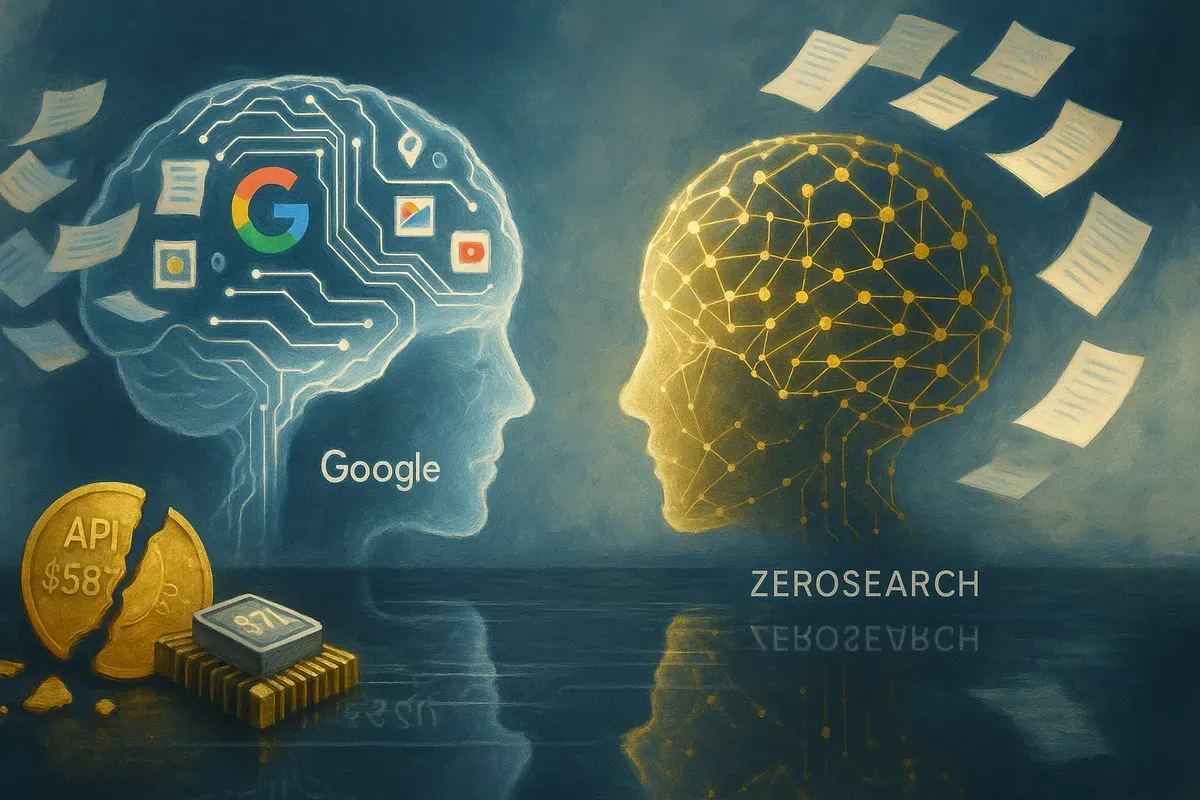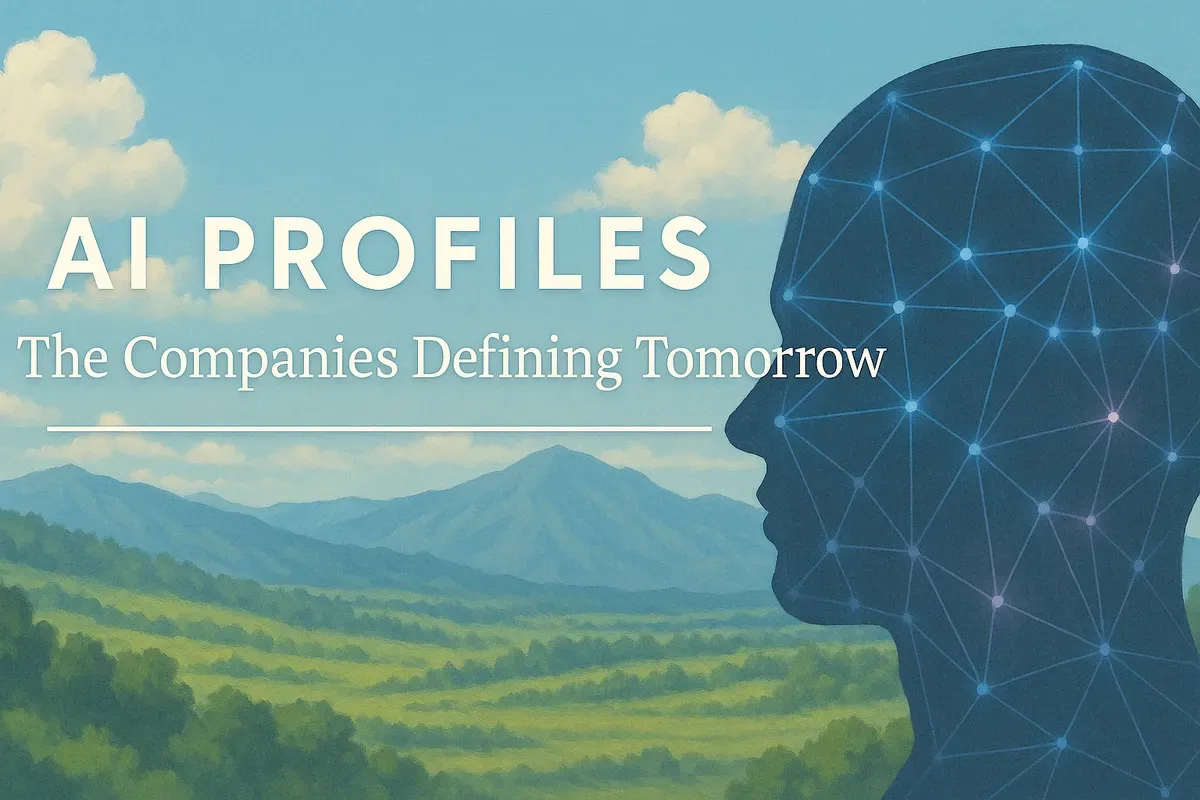Anthropic Tried to Absorb OpenAI in 24 Hours
Good Morning from San Francisco, Elon Musk canceled Sam Altman's Tesla Roadster last week. Altman called it theft.

Good Morning from San Francisco,
Trump plans to ship hundreds of thousands of AI chips to the Gulf 🚢, ditching old export limits. The deal hands UAE's G42 and Saudi Arabia's Humain direct access to US tech - despite G42's past ties to Chinese firms 🤝
Meanwhile, search startup Perplexity AI talks $500M funding at $14B valuation 💰. Their pitch? Skip Google's link lists for direct answers. Apple noticed - Safari searches on Google just dropped for the first time in 20 years 📱
Stay curious,
Marcus Schuler

The Trump administration plans to send hundreds of thousands of AI chips to Gulf nations, marking a dramatic shift from previous restrictions. The deals with the UAE's G42 and Saudi Arabia's Humain could reshape the global AI landscape – though security experts warn of potential risks.
The centerpiece involves G42, an Emirati AI firm seeking direct control of advanced chips. David Sacks, the White House AI czar, is finalizing terms that would give G42 unprecedented access to US technology. The deal comes despite past concerns about G42's ties to Chinese companies like Huawei.
Saudi Arabia isn't far behind. Its new AI company Humain, chaired by Crown Prince Mohammed bin Salman, stands ready to receive thousands of chips from Nvidia and AMD. The timing isn't accidental – Trump's Middle East tour this week provides the perfect backdrop for announcing these landmark agreements.
The deals mark a clear break from Biden-era policies. While the previous administration insisted on strict oversight and limited chip exports, Trump's team favors direct dealings with Gulf governments. They're betting that stronger tech ties will cement US influence in a region eager to move beyond oil.
Tech titans see opportunity too. OpenAI's Sam Altman pushed for increased chip access in the region. Microsoft already holds a $1.5 billion stake in G42. Even Meta's Mark Zuckerberg and Tesla's Elon Musk are heading to Riyadh for deal announcements.
But not everyone's celebrating. Security experts worry these chips could end up helping China advance its AI capabilities. After all, G42 faced scrutiny just last year over its Chinese partnerships. Congressional committees urged restrictions, not expansion.
Why this matters:
Read on, my dear:

Prompt:
Surreal Loch Ness Monster, ethereal morning routine, Loch Ness Monster in the style of Pedro Almodovar, colorful, dramatic, exaggerated, high resolution

Perplexity AI is discussing a $500 million funding round that would value the search startup at $14 billion. The talks with Accel Partners mark a pullback from earlier plans to raise $1 billion at an $18 billion valuation.
The two-year-old company wants to reinvent web search. Its tool skips the traditional list of links, instead giving direct answers with citations. Think asking a librarian versus digging through card catalogs.
Apple recently revealed that Google searches on Safari dropped for the first time in 20 years. The tech giant is now talking with Perplexity and other AI companies about adding their search features to Safari. Google's stock fell 7% on the news.
Competition is ramping up. OpenAI added search to ChatGPT. Anthropic's Claude now browses the web. Google launched AI Overviews, though not without hiccups.
Perplexity plans to launch Comet, its own web browser. But challenges loom. Publishers aren't happy - The Wall Street Journal sued over content usage, and The New York Times sent a cease-and-desist letter.
The numbers raise eyebrows. Perplexity makes just under $100 million yearly. Its value has jumped from $1 billion to potentially $14 billion in about a year. That's the kind of growth that makes venture capitalists forget how to do math.
If the deal closes, Accel partner Sameer Gandhi will join the board. Neither Accel nor Perplexity commented on the talks.
Why this matters:
Read on, my dear:
Act as a knowledgeable travel guide who provides detailed recommendations for exploring [LOCATION].
Please include:
1. A brief overview of [LOCATION]'s cultural and historical significance
2. 3-5 must-visit attractions or landmarks and why they matter
3. 2-3 lesser-known spots that locals appreciate
4. Practical information about:
- Getting around (transportation options)
- Accommodation suggestions for different budgets
- Typical costs to expect
- Best times to visit
5. Cultural etiquette or customs I should be aware of
6. Food and dining recommendations
7. Any safety considerations specific to this area
I'm interested in experiencing [LOCATION] for [X DAYS] and particularly enjoy [YOUR INTERESTS - e.g., history, outdoor activities, food, architecture, etc.]. My approximate budget is [BUDGET RANGE].
Please suggest a realistic itinerary that balances popular sites with authentic experiences.

Alibaba researchers have built a system that teaches AI to search without using real search engines. Their method, ZEROSEARCH, matches and surpasses Google's performance while cutting training costs by 88%.
The system solves a basic problem: training AI to search is expensive. Google searches cost $587 for 64,000 queries. ZEROSEARCH does it for $71 using GPUs. It works by having one AI model act as a search engine while another learns to search.
The results are clear. Their 7B parameter model matched Google's accuracy. Their 14B model did better. The system works across different types of questions, from simple lookups to complex problems that need multiple searches.
The method uses a step-by-step approach. The AI starts with easy searches and moves to harder ones as it improves. This builds skills gradually and avoids the problems of unpredictable results from real search engines.
The system runs with many types of language models and includes safety features to filter harmful content. Tests show AIs trained this way make smarter, more efficient searches.
Why this matters:
Read on, my dear:
Google's open AI models Gemma have racked up 150 million downloads since launching in February. The models, which work with both text and images in over 100 languages, have sparked 70,000 variants on Hugging Face. But Meta's competing Llama models lead by a wide margin with 1.2 billion downloads.
Audible is bringing AI narrators to its audiobook platform, partnering with publishers to convert more books into audio format - particularly targeting non-English markets. Only 2-5% of books currently exist as audiobooks, but Audible aims to change that by offering publishers access to over 100 AI voices across English, Spanish, French and Italian, with plans to add translation features soon.
European defense startup Helsing plans to deploy unmanned mini submarines that can patrol underwater for three months straight. The SG-1 Fathom subs will use an AI system called Lura to spot vessels 40 times faster than humans can, at just 10% of the cost of crewed patrols.
Theom just landed $20 million to help companies track and protect sensitive data, with unusual backing from competing data giants Snowflake and Databricks. The startup runs its AI security tools inside clients' systems rather than extracting data - a key selling point that's attracted customers like Fiserv and JetBlue.
Meituan plans to invest $1 billion over five years to launch its food delivery app Keeta in Brazil, marking the Chinese tech company's first push into South America. The Beijing-based company signed the deal at a Brazilian-Chinese business forum, joining a wave of Chinese firms - including semiconductor maker Shenzhen Longsys and fast-food chain Mixue Group - that pledged $4.7 billion in Brazilian investments.
Owner.com Inc., a startup that builds software for restaurants and small businesses, just raised $120 million at a $1 billion valuation - five times what it was worth last year. The California company helps restaurants boost their online presence and convert website visitors into customers, with more than 10,000 restaurants already using its AI-powered tools for website building and marketing automation.
Workplace scams have gotten so sophisticated that professionals now run detailed background checks on new contacts. Nicole Yelland, who works in PR at a Detroit nonprofit, checks contacts through data aggregators, tests language skills, and demands video calls after falling victim to a convincing job scam - one of many that have cost Americans $500 million since 2020.
Dozens of price comparison websites across Europe want Google to pay €12 billion for allegedly stealing their customers. The lawsuits follow a 2017 EU antitrust fine, and many are moving forward after courts confirmed Google broke competition laws. The biggest claim comes from Italy's Trovaprezzi at €3 billion, while Sweden's Pricerunner wants €2.1 billion.
Google just updated its 'G' icon for the first time since 2015, blending its signature red, yellow, green, and blue colors instead of keeping them in separate blocks. The new design, which matches the style of Google's Gemini AI branding, is already live in the iOS Search app and Android beta.

Perplexity AI is a new search challenger that delivers cited answers instead of links. Founded in 2022 by four AI engineers in San Francisco, it's now valued in the billions.
Perplexity has grown to 15+ million monthly users in two years, handling hundreds of millions of queries. With fresh capital, it's hiring engineers to improve its AI and possibly build proprietary models.
The company faces three main challenges:
Recent developments show promise: Apple may add Perplexity as a search option in Safari, and the company launched an assistant feature on Android that can interact with other apps.
Get the 5-minute Silicon Valley AI briefing, every weekday morning — free.